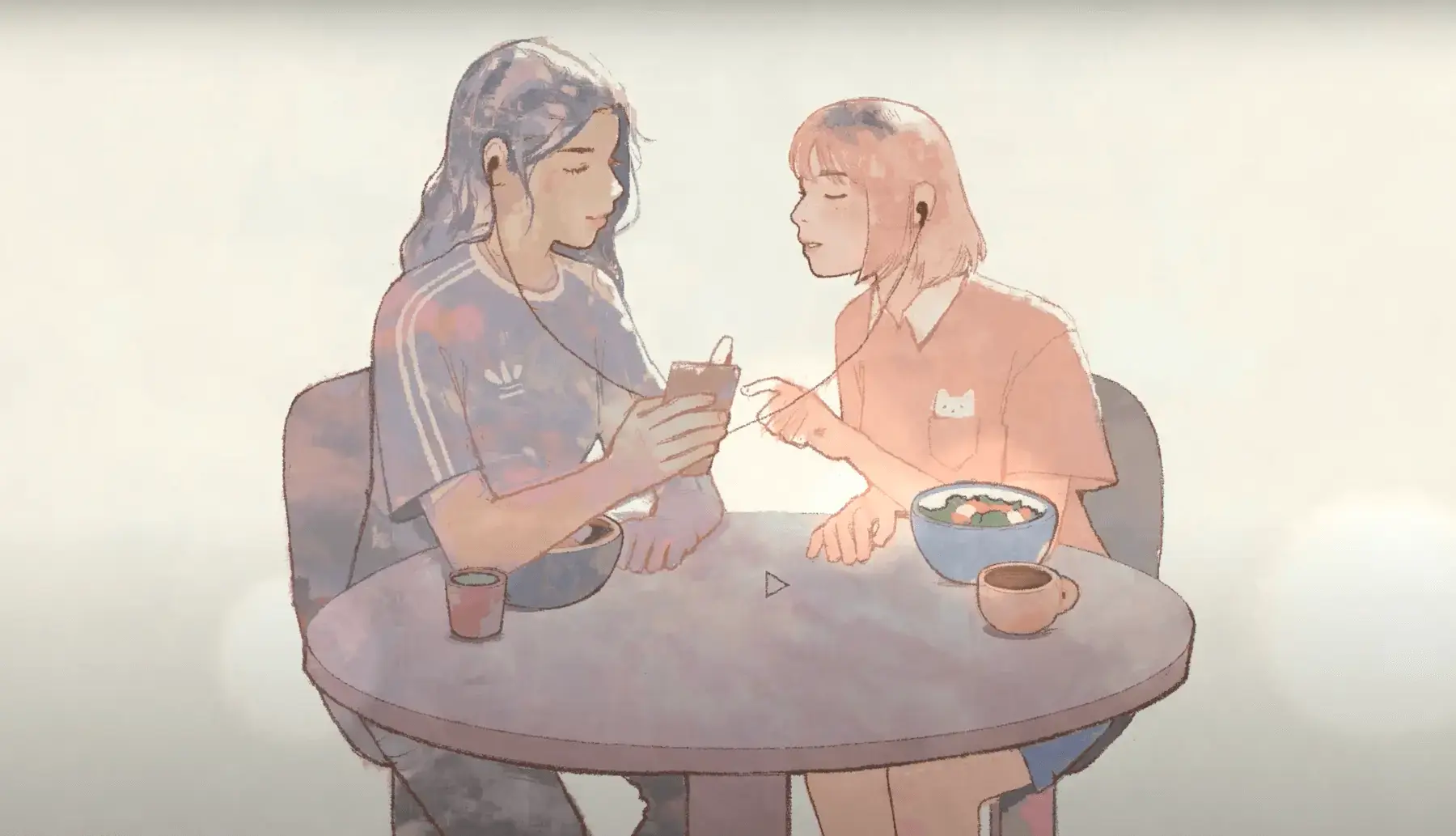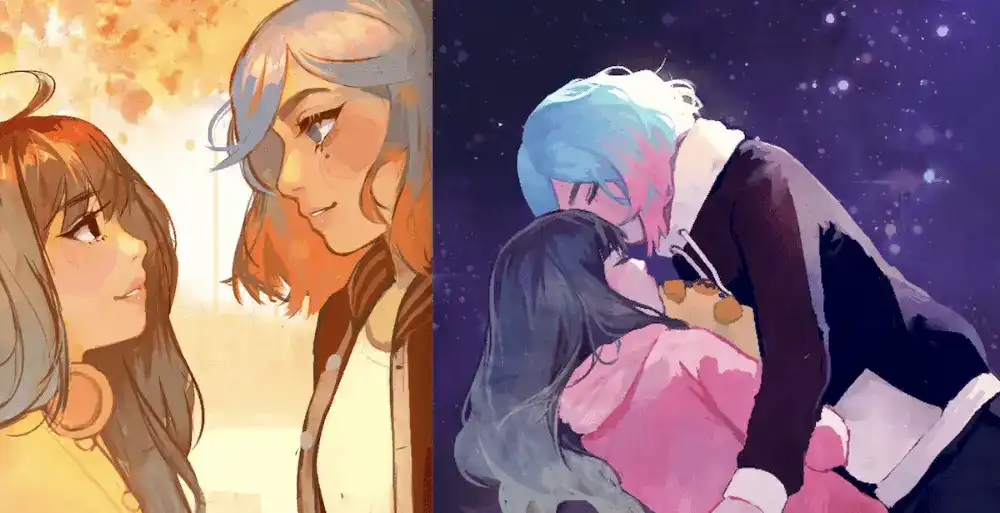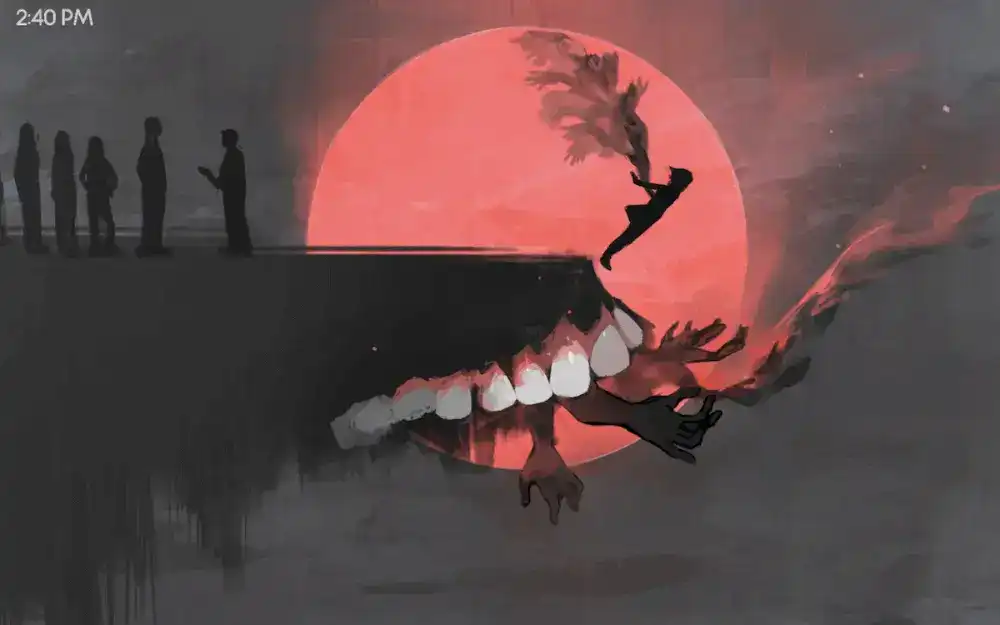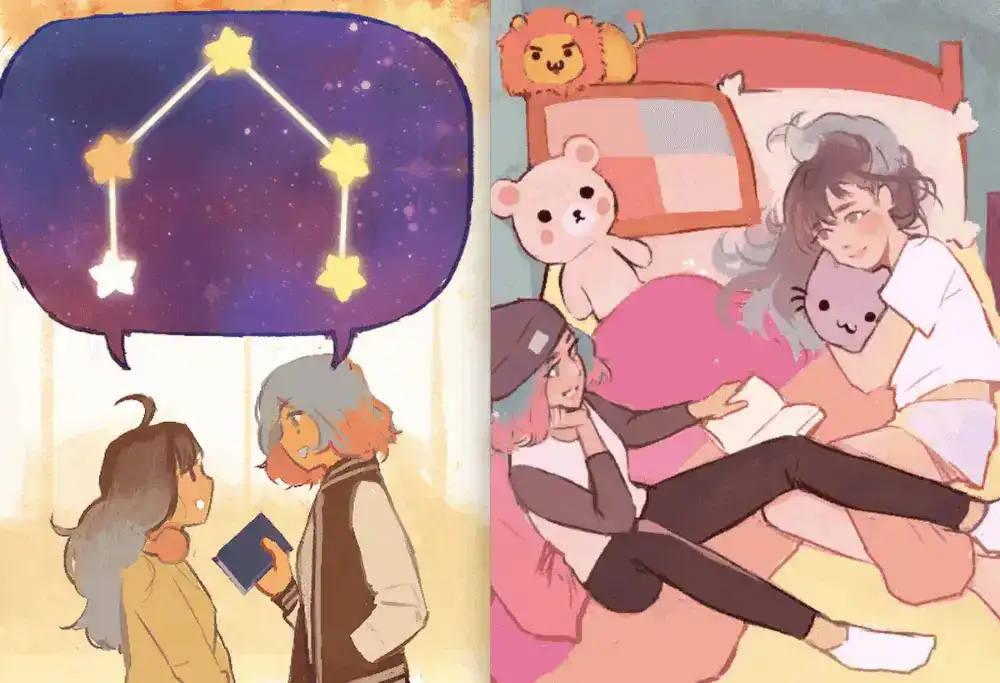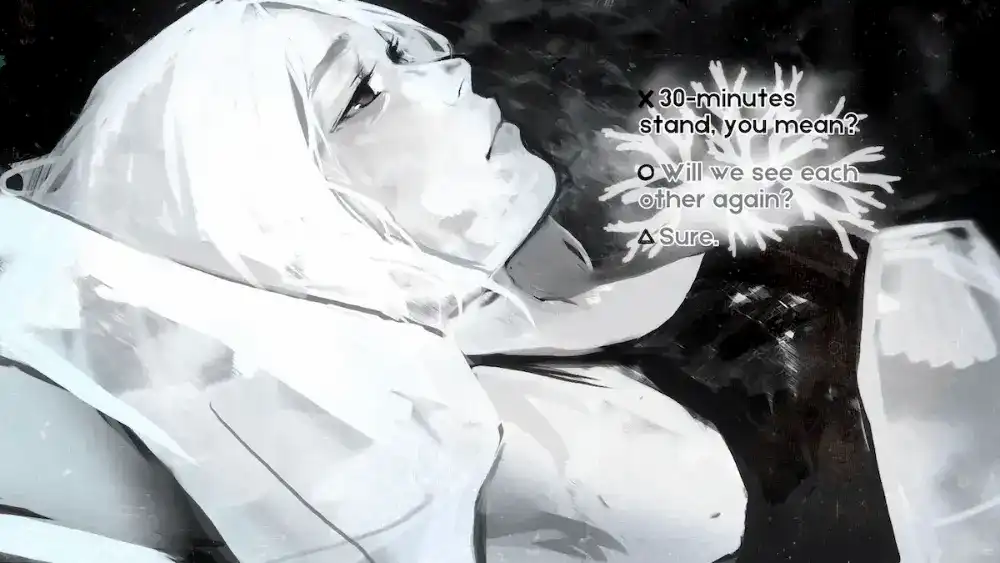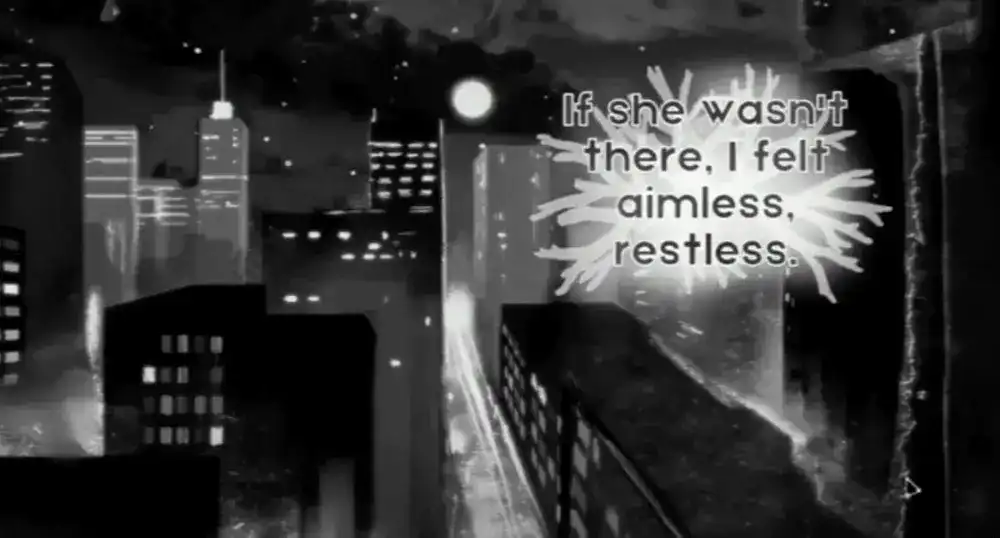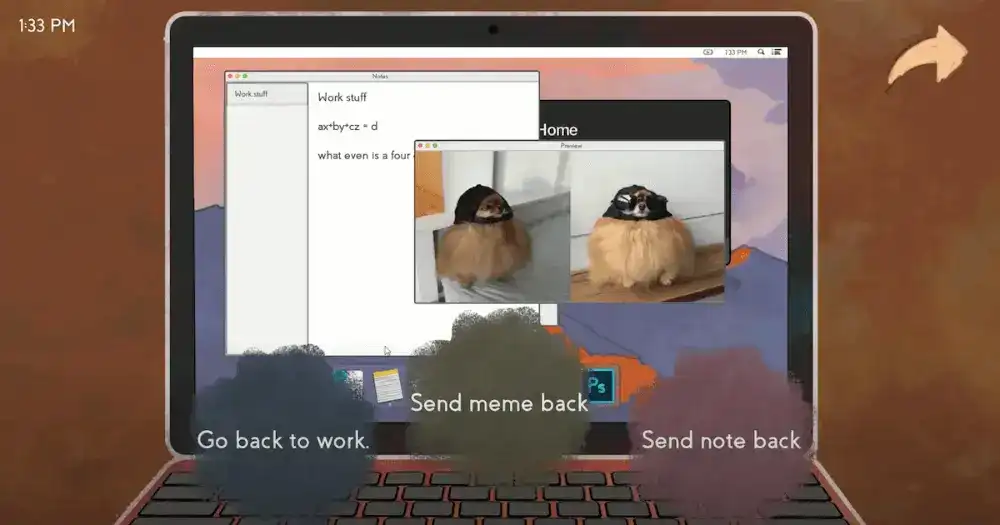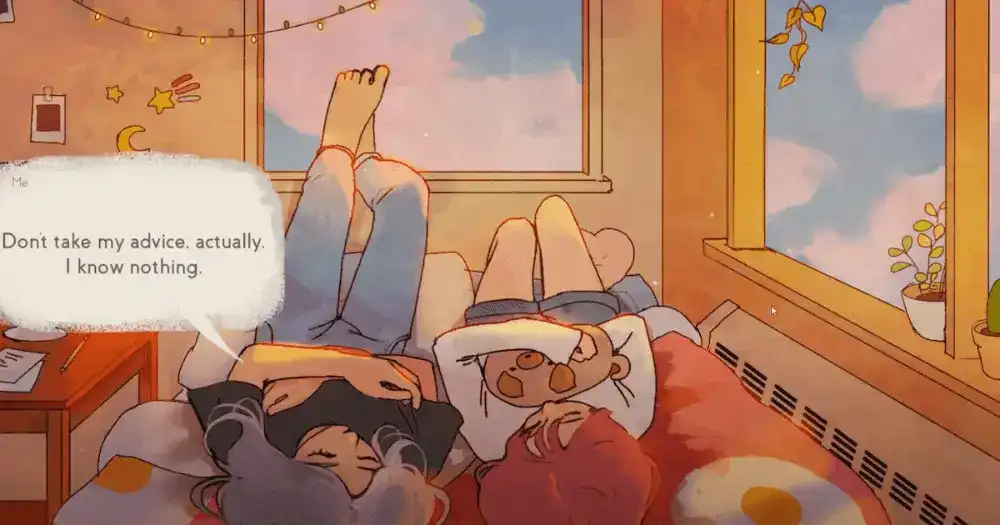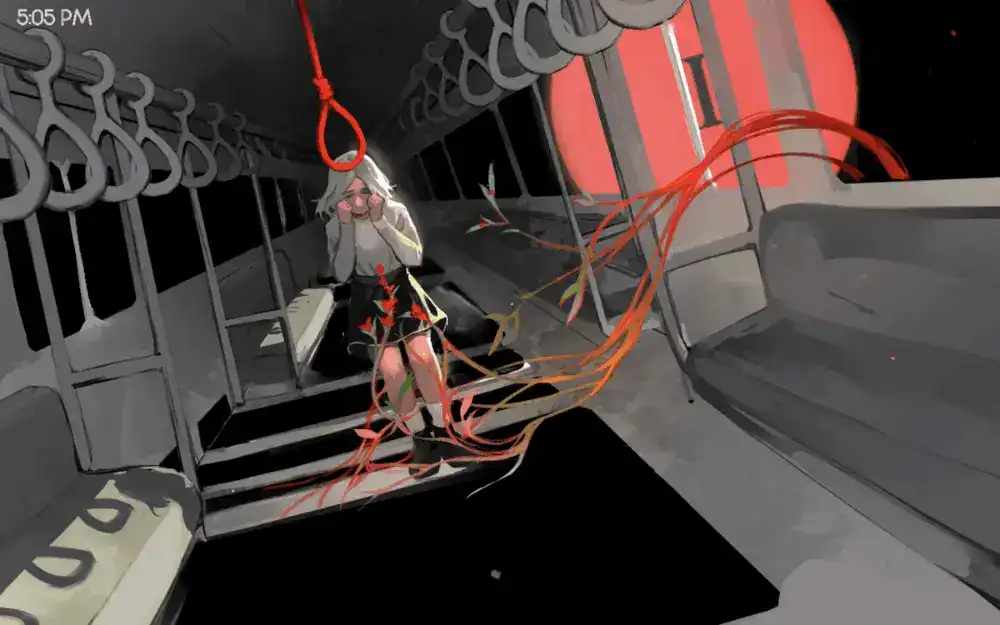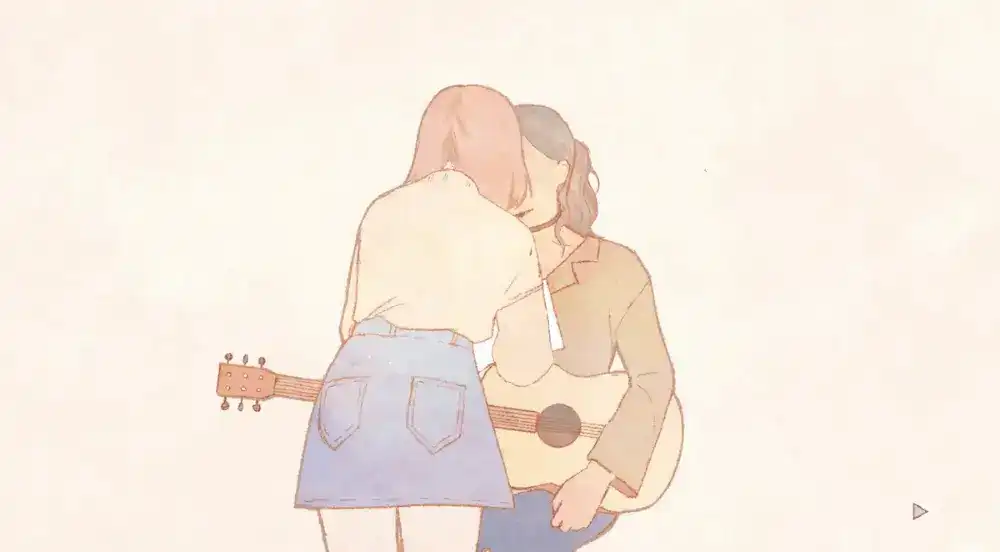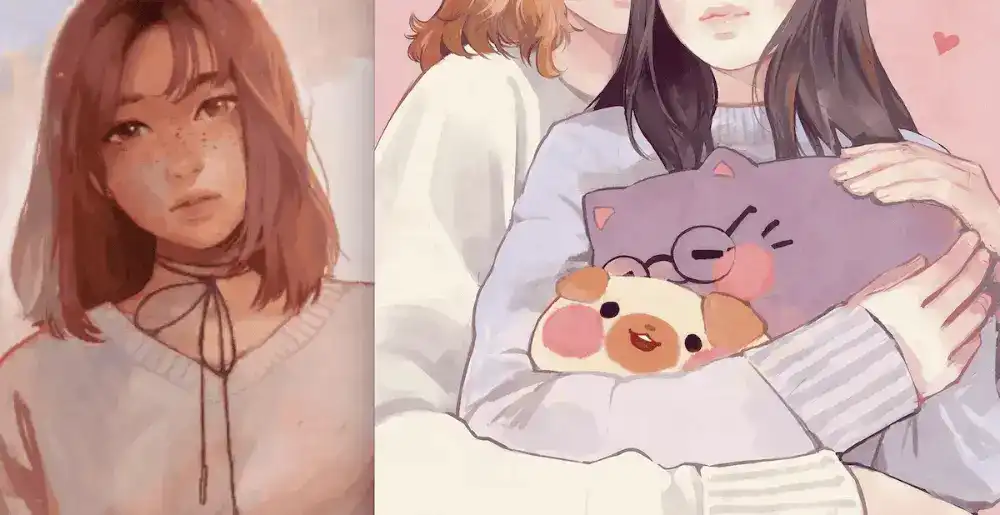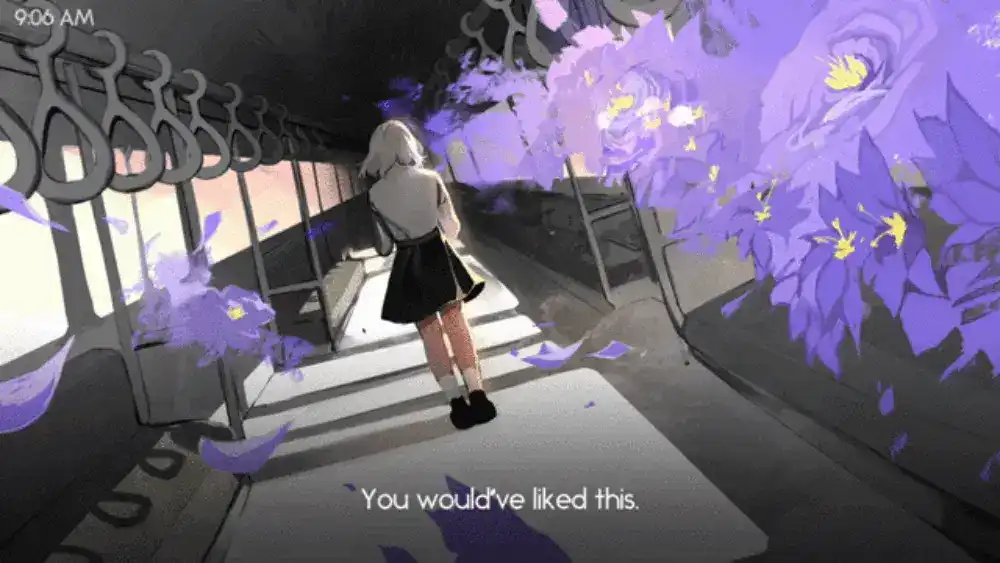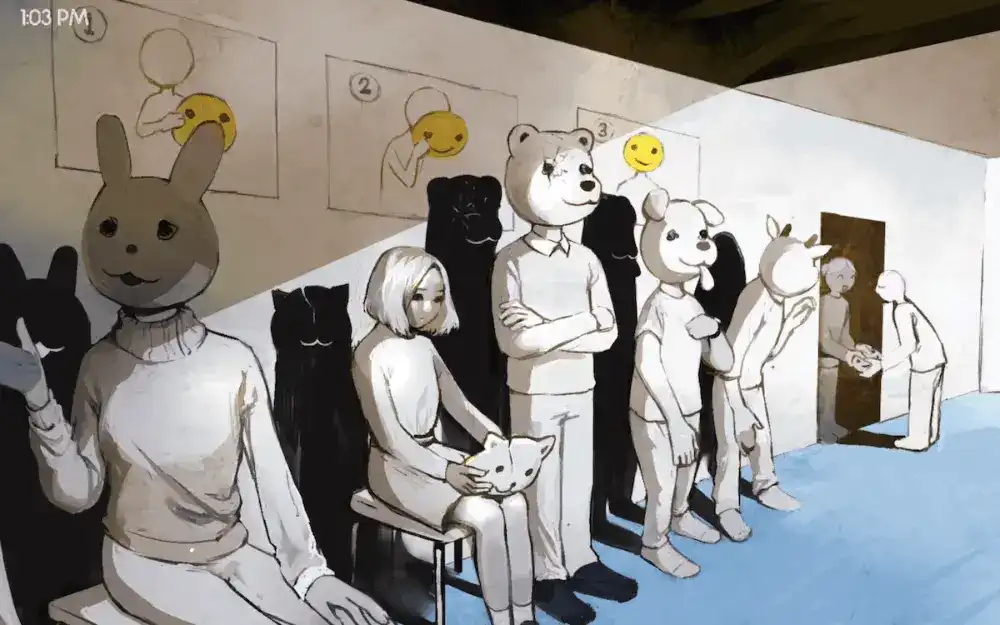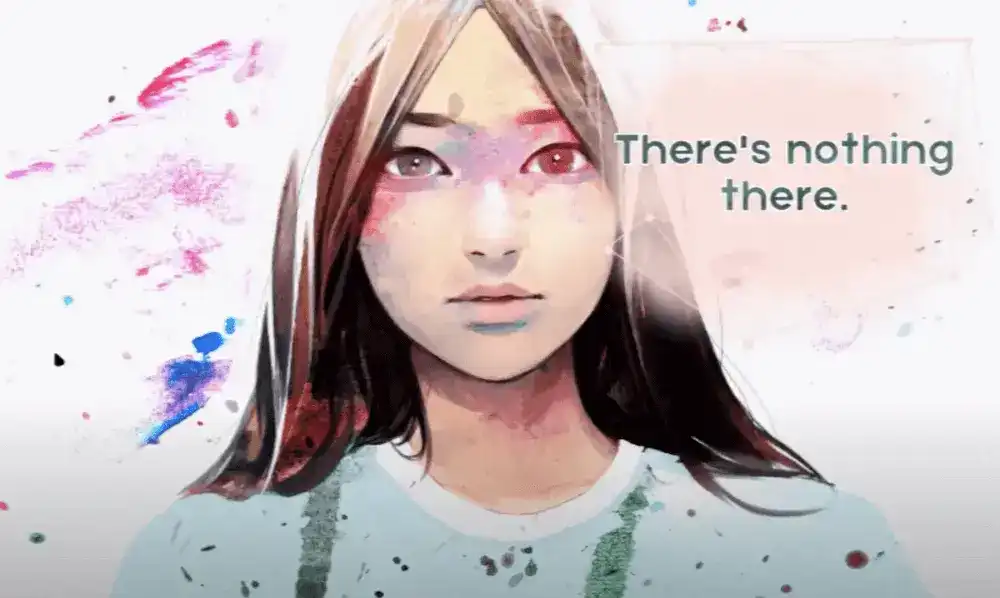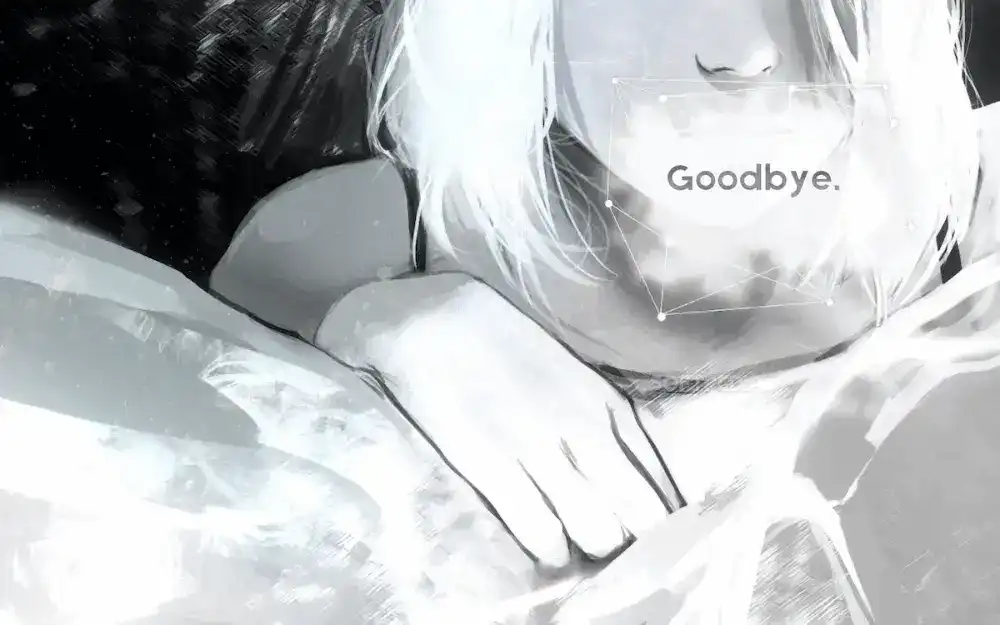A year or two ago, my friend Emily raved about a game called there's this girl. Obviously I had to pick it up and play. As the characters in that story fell in love, I too fell in love with the beautiful illustrations and well-written story.
On top of that, the main characters weren't the typical straight couple you see in many romances, but they also weren't unrealistic or over-sexualized like in many LGBTQ+ oriented stories.
The visuals novel was also distinctly light on words and dialogue unlike most story-focused games, but it clearly proved that pictures are worth a thousand words. Little did I know, the developer and artist Angela He had many others like it with even more intense stories — and all based on real life experiences at that.
In time for pride month, I finally discovered and got around to playing the rest of her LGBTQ+ and mental health-oriented games and visual novels, including her most recent title, a new life. Each one I played was more amazing than the last in terms of depth, storytelling, and powerful messages, yet the dialogue remained realistic and relatable rather than overdramatic or stale unlike a lot of other visual novel dialogue.
Some Comments Before We Begin
Before diving deeper into my observations about the overall style of the developer/artist Angela He, my personal sentiments about the stories, and the connections between the visual novels that I'd been pondering, I'll give an overview of each game I played for a clearer picture of the games I'll be referencing. Later this month and next, there will also be full articles on each one that I'll add links to, if you're interested in a more in-depth look at each individual game.
Though I tried to keep the spoilers mostly minimal and vague, and I don't think they'll ruin your experience with the games, if you would rather not read any spoilers at all, click to skip to the section "there's these games" at the end of all the game summaries.
there's this girl
The love story of there's this girl is told through beautiful illustrations. As two people meet by chance and find out they have a lot in common, they slowly spend more time with each other and fall in love, only to start growing apart as they both deal with their own lives, career choices, and realities.
Though there are nearly no words or dialogue in the game, the story and creative images elicited strong emotions and attachment to the characters and their relationship. At the end, a fateful event gives you a choice. Both choices lead to scenes that will keep you pondering and imagining what happened next... but in the best way possible.
I woke up next to you again
At first sight, the near-monochromatic game, I woke up next to you again, appears to be another romance-focused visual novel, and it can be interpreted that way, but as I played through one storyline and then another, it became clear to me that there was a deeper meaning and a metaphor to be discovered.
The story goes that you meet this girl (or guy) who you have what was supposed to be a one-night stand with, but one night turns into two and three and so on until a deeper attachment is formed. Depending on your choices, you either fight this attachment with the support of others or give in to temptation.
As I mentioned before, the story is not actually about the romance when you dig deeper. I've thought about whether I should disclose my inferences about what exactly this game is truly getting at, and decided I will because I don't think it will ruin the story, message, or experience. Moreover, it's possible that others will have other interpretations. However, if you don't want to hear it, skip the rest of this section.
From some of the pointed dialogue towards the end, I personally deduced that this game is actually about addiction and how it slowly takes over your life. After realizing the underlying meaning, I saw the metaphors everywhere in the story, and they were embedded skillfully — subtle but not so subtle that you'd miss it.
missed messages
The third game I played was yet another take on mental health, this one more intense than the last. In missed messages, the player is a college student with work to do while distractions abound on their screen and in their dorm room.
The synopsis of the story is intentionally misleading in that it describes the game as the player receiving an AirDropped meme from 'goth gf's iPhone' and being able to choose whether or not to answer it. To my surprise, the real essence of the story was actually in the interactions with the player's sweet but troubled — to say the least — roommate, May.
It was definitely unclear in the first playthrough that I could do anything meaningful other than interact with and respond or not respond to goth gf's messages. Likely, it was an intentional, clever part of the game's design and even synopsis. After I reached the unforgettable, horrific ending, it was obvious there was something I was missing or ignoring, and it wasn't those distracting AirDrop messages.
Sure enough, I figured out what the visual novel was getting at the second time through and learned the real lesson — to not ignore even the most subtle signs (or messages) signaling a need for support.
you left me
A game about loss, grief, and moving on, you left me hit the hardest of all the games and was the only game out of the five that sent chills down my spine, not out of horror but out of admiration of the symbolism hidden in the colors and the abstract environments. The cryptic, emotion-heavy images spoke to me louder than words ever could.
As the main character in the story deals with the loss of her loved one through a quirky world she enters when she's supposed to be asleep, you help her navigate through the strange environment and eventually either guide her to her escape or remember and accept. Or, you could just stay in bed and chat with the dad-joke-telling moon and one-eyed cat.
a new life
The most recent game by Angela He, a new life, is about a very real relationship between two girls and all the different life paths they can take based on the smallest choices they make. Such choices as sitting next to each other at a table or staying longer at a grocery store could change the course of their lives for decades. Each time you begin the game again, there truly could be a completely different life that plays out.
The things I loved most about this game, other than each small choice mattering, were the relevance to our current world situation — coronavirus and quarantine — along with realistic dialogue and text messaging of a couple, relatable ups and downs, and accurate depiction of the excitements of a new relationship and comfort of a long-term one.
I'd recommend this to anyone who wants a cute, very gay love story and is down with crying a few times in one day.
there's these games
All of these games are amazing on their own, but after playing each one and understanding the style and themes in each I now want to talk about them, and the developer and artist behind them, as a whole.
Common Themes
There are three major themes or commonalities in each of Angela He's stories: a gay or gender ambiguous couple, loneliness and loss, and mental health issues such as depression or addiction.
Though at least 2 of the 3 the themes are prominent in every visual novel, they're presented in different ways each time — sometimes, it's direct and sometimes it's abstract and dream-like, requiring interpretation or multiple playthroughs from the player. All of this is expressed mostly through art and color and, only when needed, the minimal dialogue. I'll get more into the art a bit later.
Relatable Content
Outside of themes, another commonality is that most of the stories draw upon the developer-artist's real life, and it's not hard to find the pattern among the main characters even if only by subtle defining characteristics.
There was the short pink hair, a love for a particular pug plush (and cat plush), and her short height. She's also often paired with a taller girl with dark wavy hair. Sometimes, the pink-haired girl was controlled by the player but much of the time she was just the main girl being interacted with.
This girl being present in each storyline had me thinking that it must be the developer of these beautiful visual novels and that she must have gone through all of this or something similar. A lot of the scenarios made a lot of sense once I did a bit of research and saw that she was a college student at a place not too far from my own.
It also made sense then why I related so much. We were around the same age, majoring in the same subject, and having interests that Asian parents wouldn't approve of. We were also both LGBTQ+ and from colleges that have a love of memes and freedom of expression.
These similarities to my own reality made the intimate look into her life and thoughts on love, loss, memes, and everything else feel that much more heavy and real. I appreciated this vulnerability revealed to us players through the thin veil of her games.
I'm grateful these exist in the world because I know they would help those who need these kind of stories to relate to, those who want to understand how to pay attention to and support loved ones who need help, as well as people like me who just need a nice gay story to enjoy.
Art and Storytelling
The art style is beautiful and though I'm not an artist myself who can really say a lot about art, it's obvious Angela He has a distinct style consistently showing through in each game.
My favorite aspect of her storytelling through her art is the use of color. The pictures will either have no color, only a splash of color, or a confetti of colors depending on what is needed to get across the point or the emotion of the picture at different points of the story.
On top of all this, there are amazing soundtracks that really bring out the mood of each image and story scene in the visual novels. The combination made each piece insanely moving and every scene was a masterpiece of art that hit hard.
There's more I could say, but just look at these brilliant examples because they say more than I ever could.
Aside from art, there is a unique storytelling style in the dialogue and choices too. Most of the time, the dialogue and choices are pretty minimal, allowing you to interpret the images how you will, yet they will appear at the crucial times and can change the interpretation of the story or whole course of the plot line you're in.
In there's this girl, there is only one choice and it's at the end, but it's the most important one you could make. In a new life, there are quite a few and each one is seemingly small, but completely alter the story of the lovers. In missed messages, there are very subtle hints that you can easily miss leading to a small window of time where your seemingly casual choices can completely change the outcome of the story.
Each "small" choice in Angela He's games feels important, even pivotal, unlike in many branching story visual novel games where choices are just frivolous pieces of dialogue that always circle back to the same scripts no matter how many playthroughs you try.
Though in some of the games there is not as much dialogue as you might be used to or not as much choice as you might be used to, each decision can be life or death.
Wrapping Up
Need a good way to wrap up pride month as much as I need a good way to wrap up this very long article? Play all of Angela He's visual novel games and cry and smile and understand as you glimpse the lives of those in pain, those in need of support, and those in love through the lens of these beautifully illustrated playable stories.
It'd be awesome if I've convinced you to play these games with all my words in this super long article, but in all honesty there are still not enough words to describe the way these stories made me feel — you'll just have to play to understand.
